Q&A: The Oracle chats with Post-Gazette writer Brian Batko
April 22, 2021
Shaler Area graduate Brian Batko, one of the Steelers beat writers for the Pittsburgh Post-Gazette, recently sat down with The Oracle to discuss his life currently covering Pittsburgh sports for a local newspaper.
What was life like at Shaler and Pitt, and how did you get to where you are?
From Shaler High School I went to Pitt, and I knew I wanted to major in something media or media-adjacent. I ended up majoring in Communications, which I found to be not a whole lot of hands-on classes where you’re actually learning about journalism and learning how to construct stories and everything like that, so I switched my major to Media and Professional Communications so that was a little bit more practical experience; more journalism and nonfiction writing-type classes. That was helpful for me, but nothing was more beneficial than the experience I got outside of the classroom in college. I got a couple internships after my sophomore year. I interned at 93.7 The Fan. I was already kind of sure that if I get into reporting I would want to do it in sports if I could. I was more in the radio realm at that point but after my junior year at Pitt after having a little bit more journalism background, I started writing for Pitt News, the student newspaper, and had some work published there. I got an internship at the Post-Gazette and I wasn’t entirely sure what I was gonna do there, but I just knew that would be a great opportunity to get my foot in the door and learn from real pros. I started as a multi-media intern because at that time in 2010 or 2011 newspapers were trying to get more toward digital media and doing things of that nature. When my internship was over they had another internship open and this was on the sports copy desk. That job was all about writing headlines, proofreading stories and publishing stuff to the website. I did that for my second internship and they hired me because they had a spot on their nightdesk and they actually hired me right before my final semester at Pitt. After about three or four years of working from 4:00 p.m. to midnight and being completely behind the scenes and wishing that I could get back in a role where I’m actually covering games and reporting on things that finally happened to me and I was covering high schools. Then I started covering colleges for about two and half years and then a couple years ago there was an opening covering the Steelers at the Post-Gazette and I couldn’t really pass that up.
Was journalism always something that you wanted to do or did you have another path for yourself in mind?
That was pretty much what I saw myself doing. When I was applying for colleges I think if I would’ve had a little bit more of a plan in place maybe I would’ve gone to a school with a more prestigious journalism program or more known for broadcast journalism when I wanted to do that. I knew that it was one thing I was kind of good at. I never liked math or science so a lot of those fields were non-starters for me. I hardly had it all figured out, especially writing for a newspaper. That’s something I didn’t really envision. I always wanted to do more in radio or even video. I kind of knew what I wanted to do, but it was definitely not something I was 100 percent [sure of]. I more so stumbled into it and I’ve gotten a lot of lucky breaks, because you certainly need that in this business.
What are some of the most memorable moments that you have covered so far in your career?
I mentioned that my first opportunity at the Post-Gazette was as a multimedia journalist and they hardly needed me to cover anything super serious but I remember being sent to cover the Jerry Sandusky trial up at State College. That was pretty heavy for a college kid. I had read about it of course and had watched it on TV but actually being there when the guilty verdict was handed down and he was basically being sent to prison and I was just kind of standing there with my camera jockeying for position with 50, 60, 75 other journalists from around the country and that was the first media circus I got to experience. [I remember] the craziness outside of that courthouse and reporters sitting on the ground with their laptops open trying to file stories, getting out their flash drives. I’ll always remember that scene. You certainly don’t want to cover stuff like that all the time because it is a pretty serious story, but that’s what a lot of people get into this business to do and that was pretty memorable.
Do you see more of a competitive or fraternity feel between yourself and other reporters?
[The competitive angle] is definitely there. I think some reporters read the work of other writers more than others. In press conference settings, it’s never really like the journalism movies or TV shows where someone who has the big scoop asks the big grand question that catches someone in a lie because in the real world reporting, if you had that scoop, you’re not just gonna go out and give it to the other 20 or 30 people that are sitting there. You’re gonna go behind the scenes, probably sitting down with your editor to talk about how many sources you have, are they good, do you have another angle … It’s not always as dramatic as it might seem. The players and coaches that we cover I feel are mostly distrusting of the media in 2021 for various reasons. I’ll say this: as someone who’s covered high school athletes, college athletes, and pro athletes, there’s always kind of a give and take. High school athletes are always willing to talk. College is a little bit less than that. Once you get into covering pro athletes, their locker room is open pretty much all the time so access is good but those guys are making millions of dollars and can tell you to go screw off if they want to and occasionally they do. It’s not always as fun as it may seem. There’s days in which I wish I was back working on the copy desk. It’s a very fun job, but it also has it’s up and downs like a lot of different professions.
High school athletes are always willing to talk. College is a little bit less than that. Once you get into covering pro athletes, their locker room is open pretty much all the time so access is good but those guys are making millions of dollars and can tell you to go screw off if they want to and occasionally they do. It’s not always as fun as it may seem.
Have you ever been told off before by an athlete?
I don’t have any really brutal horror stories like that. This past year [covering the Steelers] everything was on Zoom, so I really only have one year being in the locker room. After games and especially games they lose it’s a lot tougher to deal with players because you get to ask them [tough questions] and some of those guys are better with that than others. The first time I really had any sort of dealings like that with pro athletes was when I was an intern at the Post-Gazette, I went into the Pirates clubhouse for something, it wasn’t a serious story, but baseball players, compared to NFL players, can be a little bit trickier to deal with sometimes because they have 162 games as opposed to 16 so that’s a whole lot more opportunities to talk to reporters like me and have to take a lot of questions. Some of those Pirates, trying to talk to them as a college student who had never been in a clubhouse or a locker room that was a little bit intimidating and there were some players who made me rightfully [intimidated whether it be] something like a one-word answer. I remember I tried to talk to the pitcher who was starting that night and apparently that’s a pretty big no-no in Major League Baseball and I think he just kind of said “Hey kid, I’m starting tonight. Try me tomorrow.” I’m sure I was super nervous at the time but now looking back you realize it’s just one of those unwritten rules that you come to understand when you do this for long enough. I think it was AJ Burnett, for the record.
How do you think this job is going to change because of this past year?
I hope it changes back to what it has been. Doing everything over Zoom with the Steelers hasn’t been the worst thing in the world, I’ve certainly been able to adapt to it a lot easier than many of my colleagues. That’s just the virtue of being a 29-year old doing this than a 59-year old who’s a lot more stuck in his/her ways and doesn’t know how Zoom works. The whole point of being a beat writer is you’re around the team every day and you develop relationships ideally with the players and it’s not always as simple as they’re gonna pull you aside and tell you something and give you the scoop. When they can at least see your face and realize who you are, maybe they won’t tell you off as much. 2020 was difficult for a lot of reasons because you didn’t have any of that face-to-face interaction and for me being someone who was in only their second year covering the team, that was a lot of time lost to try and build those sources and build those connections. Hopefully we’ll be back in the locker room and even covering practice in person. We were able to do that but not nearly as much. So long-term effects on the job from this is I think there will be more opportunities to do interviews with people via Zoom where you can actually see their face because a lot of this job is very boring phone calls. To do interviews when you’re a reporter a lot of the time you need to make that phone call. I think Zoom is probably here to stay for some extent but it would be good, at least in sports writing, if we can get back to doing this job for the ways it’s been for a long time, although social media is another thing that’s changed a lot since I [went to Shaler]. To do this job you need to have a handle on Twitter. I don’t do too much professional stuff with Instagram, Facebook, Snapchat, but a lot of people do. All my stories I post on Twitter and we also do a sports podcast at the Post-Gazette. So a lot of that digital media beyond just the writing can make you a much more attractive candidate when it comes time to apply to various jobs, positions, or even college programs.
You mentioned sources — how do you build sources and how do you find out which ones are and are not trustworthy?
I wish there was a book because even doing this as long as I have, writing for the Post-Gazette for 5 or 6 years, I guess, it’s never easy. There’s no quick tip for doing it. A lot of my best friends by this point are also in this industry and this is still stuff that we still talk about. You know, how do you just walk into a new team that you’re covering? That’s one thing; a lot of journalists just want to keep climbing the ladder and go from high schools to college to pros, which I was lucky enough to do, but that also means learning new people and learning new faces and getting them to trust you, and again there’s no easy way to do that. I think a big part of it is just trying to be a personable reporter. I mean, the smart ones are going to know and understand that you have a job to do and you might write something critical about them at that point, but your job is to be unbiased and objective, and not be their friend or, one thing you get a lot in covering sports, especially at the college level, which I remember is even the administrators and athletic directors and head coaches think your job is to promote them. They say, “Why aren’t you helping us out? Why aren’t you writing more about this team or that team or this player,” or “Where’s your Pitt gear?” if you go to a Pitt football game. They just don’t get it. Journalism- when you don’t write for the team or maybe for a fan blog, which certainly has their place too in the landscape of 2021- when you write for the old school places, or if you just try to do the job in the more old school way, you’re there more as a conduit to the fans and to report on what they want to know and kind of just be objective and be unbiased. That can make it tricky to build sources and get people to like you so that they will maybe tell you stuff and it’s certainly, at least in sports, which I can speak to, it’s not as simple as what reporters do on ESPN, where they’ll go out and give you the exact information–like, a certain player signing a three year deal with the Steelers for ten million dollars. If you’re lucky, once or twice that might happen to you as a local writer, but in our job and with what I do, it’s much more about trying to pick up nuggets here and there about this person or what he’s done, what his family is like, what he might be like off the field, and that’s where you can kind of try to build that. For me, it was just being around as much as I could, not blowing stuff off. I would say some of the older reporters who have been doing this for a long time and do have a source that they can just call up or text when they need something, they don’t have to be at every single practice or interview opportunity. Me, as someone who’s just starting out, I feel like I do. Just being there a lot and always having them be able to see your face, introducing yourself twice, three times, even four times if you need to, maybe give someone a card–I don’t know if that happens as much in 2021 with cell phones– that’s how I try to do it. Sometimes, it works, sometimes it doesn’t. It’s one of the toughest parts of the job no doubt. It can be easy sometimes to just sit there and write, but to go out and kind of call people and get information, you have to constantly work at that.
…as someone who grew up loving the Steelers of course and even loving Pitt basketball, you do have to divorce yourself from fandom a little bit.
How hard is it to be critical of someone, especially if you know them?
That part is hard, don’t get me wrong, but also just in general, as someone who grew up loving the Steelers of course and even loving Pitt basketball, you do have to divorce yourself from fandom a little bit. I can’t remember if that was hard for me at first, like just getting out of college, but by this point, I do see the team and the players in sports so cold and factual that that part of it hasn’t really been too hard. I don’t know how much players themselves or coaches read what we write–I think some probably read too much, and some maybe not enough–because it goes back to what I said. They don’t always necessarily understand what your job is and what the responsibilities are. But there is no doubt that not everybody is going to like what you write all the time and you’re going to get some of those tough phone calls occasionally, but if you really believe in the work that you did and that it was fair, you can absolutely stand your ground on that and you can reply with confidence that this is the job, and if there’s something you didn’t like that I wrote, let’s have a conversation about it. That’s one thing about dealing with NFL players now. It hasn’t happened to me but I’ve seen it happen in the business from other journalists that I follow. I hate to see a player call out a reporter on Twitter or Instagram, I just don’t think that’s the best way to do it. I think more often than not, sports writers or any journalists would love to have a phone conversation with a player one on one and try to get to know them better. That’s another thing that has probably been lost a little bit in the Zoom era, that personal connection and personal relationships are a big part of the job, whether you cover sports or anything else. When people see you around a lot, they know that you actually care and that you’re not trying to just mail it in for a paycheck. That’s one thing — paychecks aren’t generally very big in this line of work, so if you do it, you have to really love it.


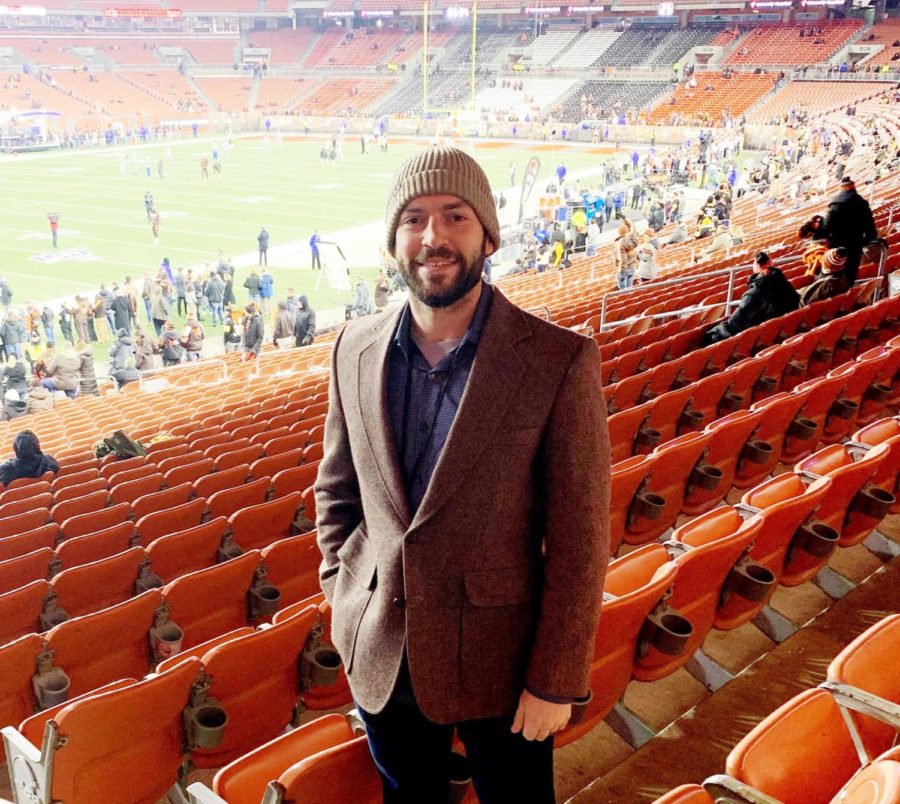


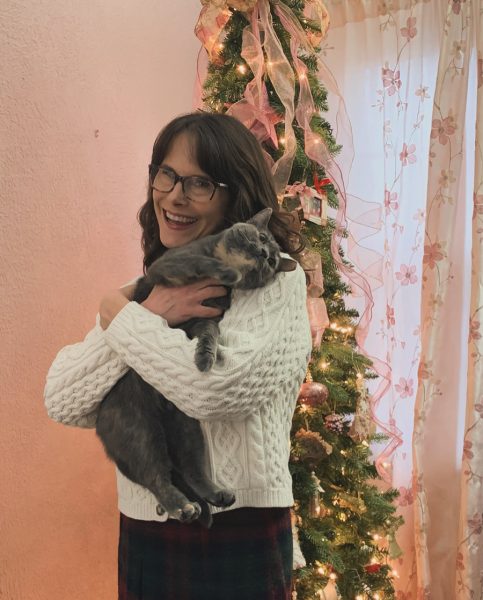
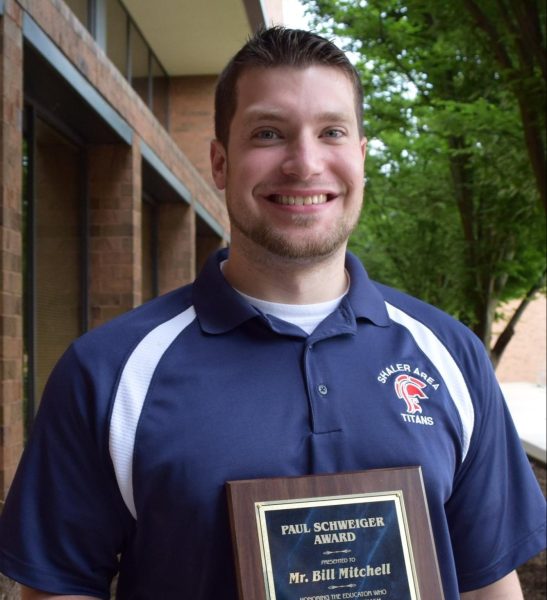
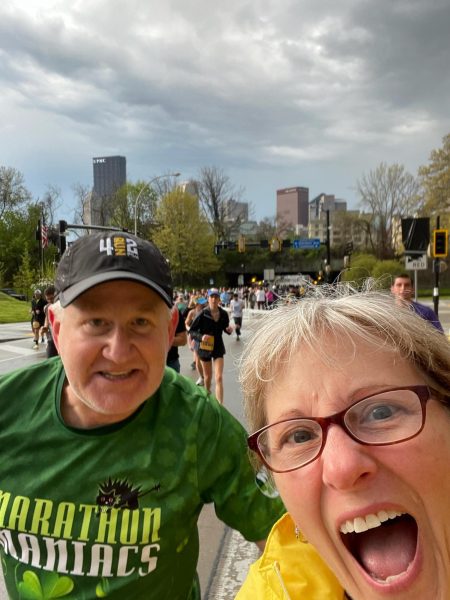
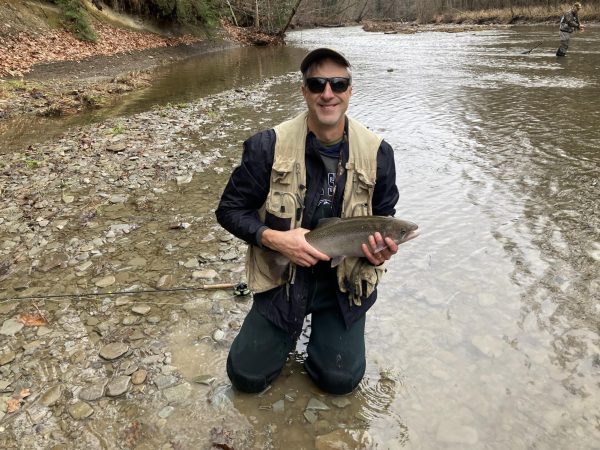

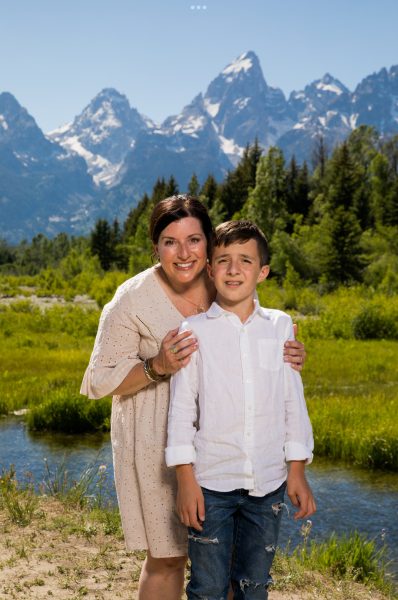
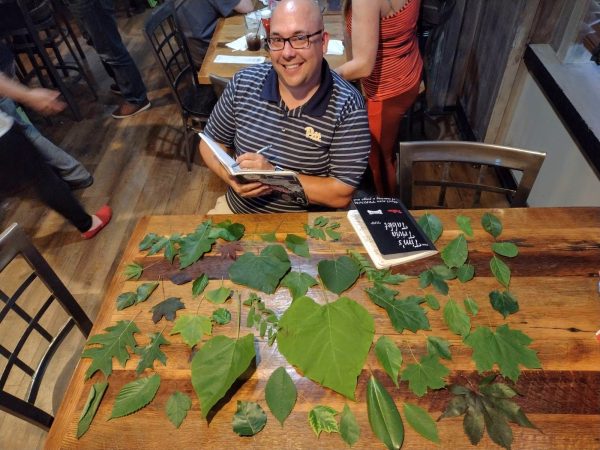
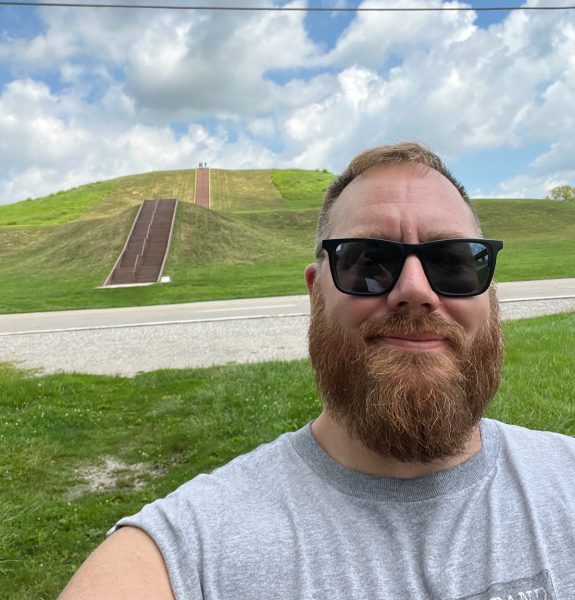

MELISSA MCCONVILLE • Apr 22, 2021 at 9:03 am
OUTSTANDING INTERVIEW AND ARTICLE!!!
DOMINIC, I AM SOOOOO HAPPY YOU AND BRIAN CONNECTED!!!
HE REALLY GAVE YOU A GREAT INTERVIEW WITH SUPER RESPONSES AND ADVICE!
I LOVE WHAT BRIAN SAID ABOUT HIS INITIATIVE, HARD WORK AND COMMITMENT TO GET HIM TO HIS JOB AS A REPORTER AND WHAT HE SAID ABOUT BEING OBJECTIVE AND THE IMPORTANCE OF PERSONAL CONNECTIONS!
GO DOMINIC!
GO BRIAN!
EXCELLENT INTERVIEW/ARTICLE — TWO TALENTED YOUNG MEN! … SO VERRRRRY PROUD OF YOU BOTH!!!